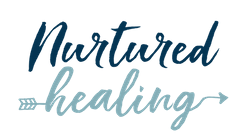Do you have a habit of “shoulding” all over yourself?
I should eat better…
I should exercise…
I should go to bed earlier…
I should call them…
I should spend more time…
I should be more organized…
I should have or haven’t [insert something in the past].
And the list goes on and on.
Sarah Rainwater, Founder and Creative Director of Studio Rainwater and design mastermind at the Instagram account, @accidentalgeometery illustrated it and said it best when she said:
‘Should’ feels like too tight tube socks, cutting off circulation and causing all the uncomfortable itches.
Sarah’s illustration and words embody the discomfort of having done something because you thought you should AND the discomfort of re-living your perceived shortcomings, such as, “I should’ve or shouldn’t have done that.”
If you regularly should all over yourself, and have “all the uncomfortable itches” here are three things you can do instead:
Check Yourself
We can get so caught up in what we think we should do that we don’t stop to check in to see if it’s what we want to do.
Ask yourself the following questions:
Am I doing this activity because I think I should do it or because I want to?
Am I doing this for approval?
Am I doing this out of guilt?
Answering these questions is especially helpful when others are asking for you to commit your time. It helps you identify and set your priorities and say no when needed. It also allows you to recognize your motivation behind where you commit your time and energy.
On the flip side, when it comes to your well-being, you may find yourself using “should” as a way to coerce yourself into doing things you don’t want to do, i.e., choosing the salad over the cheeseburger or taking a walk over binging Netflix.
Recognize that you are at choice at the moment. It can help turn “I should” into “I get to.” It may take a perspective shift to recognize that the activity you are planning to engage in is a small step in the process of a more significant desired outcome. For example, if you’re working toward being more fit, taking a walk is an individual step in the direction supporting your goal. Each step then becomes an opportunity to move toward the identity you’re seeking, instead of a task to be completed, allowing you to harness your personal power.
Release Yourself From Others’ Expectations
It’s human nature to do everything in our power to remain part of the tribe - whether that’s our family of origin, friend group, or fitting in with our co-workers. So it comes as no surprise that many of our “shoulds” result from others’ expectations of us. We strive to conform so as not to be excluded from the group.
Ask yourself the following questions:
Does the “should” seem like it’s a directive from outside of me?
Is there a level of social comparison at play?
If there were no rules or ramifications, what would I choose in this situation?
Others’ expectations are simply their life views projected onto you. They may feel the need to justify their own choices or believe it’s the “right” way to do something. In the short-term it may seem easier to go along for the ride, but deep down, you know what’s best for you, and you’re the one who will live with the outcomes of the actions you take or don’t take.
If those around you reject your actual wants and needs, it may be time to seek out people with common values and interests that can support you.
Forgiveness Dissolves Judgment
Should have means that something did not happen, but we wish it had happened. Shouldn’t have means something did happen, but we wish it hadn’t happened.
Unfortunately, most of us regularly rehash our perceived poor choices and beat ourselves up over something that happened in the past that we cannot change. I’m sure it’s not news to you that this is not helpful.
We tend to be much harder on ourselves than we would be on those we care about if they faced a similar situation.
Ask yourself:
How would I respond if someone else had made this mistake?
Experiment with applying the same approach you would offer another to you and your life. This can help you recognize your own humanity, release judgment, and open to forgiveness.
Another way to release those “I should have’s” or “I shouldn’t have’s” is to practice self-forgiveness. Practicing self-forgiveness allows you to let go of your mistakes and self-judgment, and move on more productively. It can be as simple as saying, “I forgive myself and am ready to move on,” or being more specific as in “I forgive myself for [fill in the situation].”
This amazing self-forgiveness meditation can help too.
How do you stop “shoulding” on yourself?







